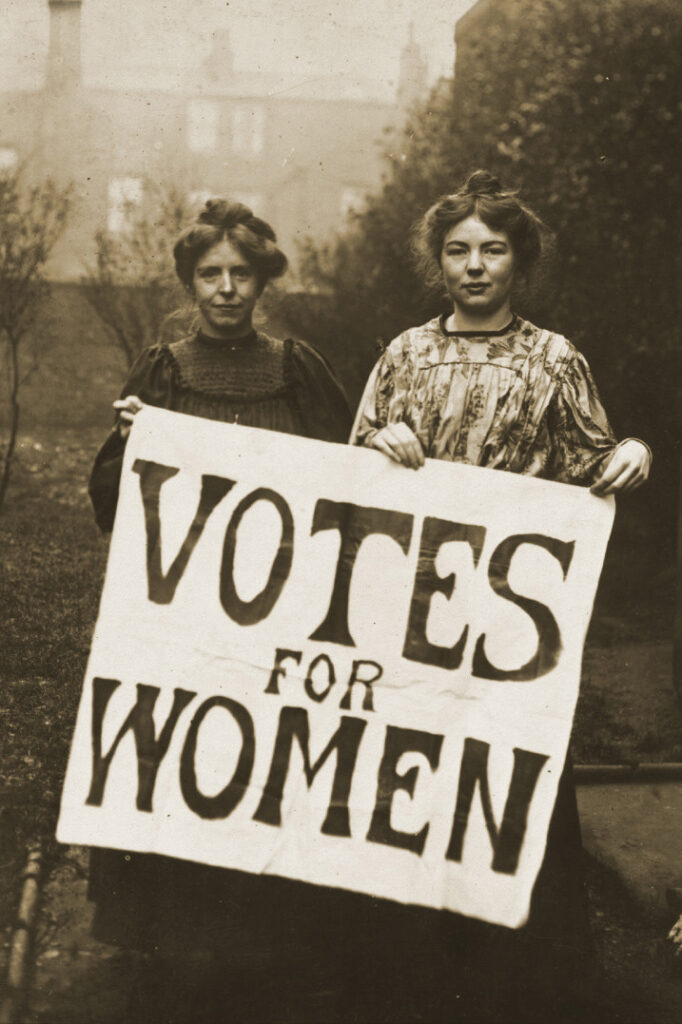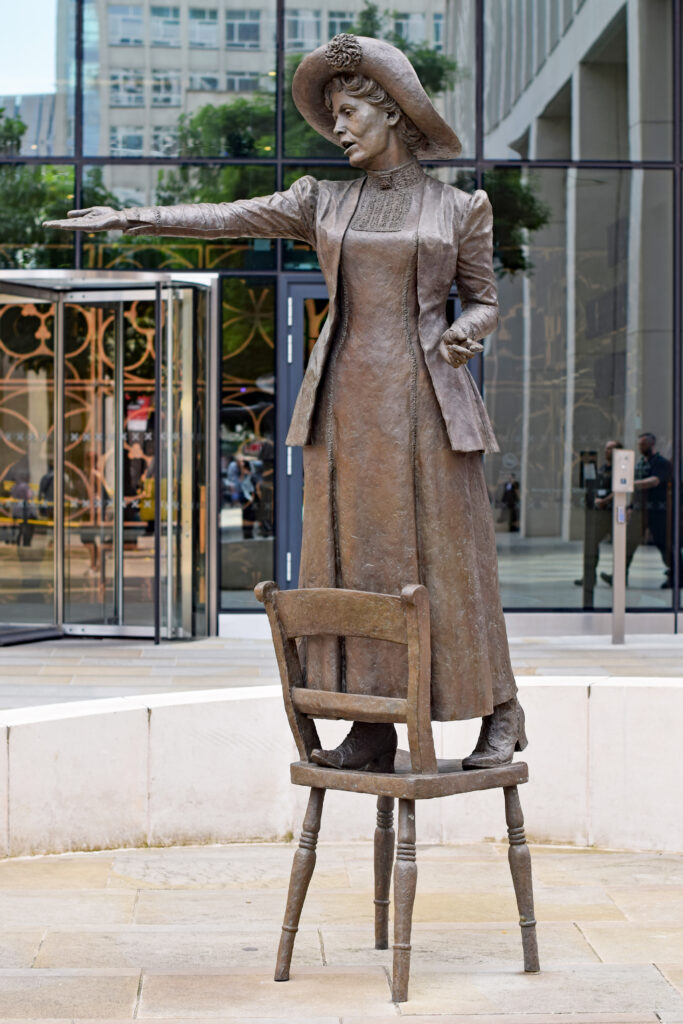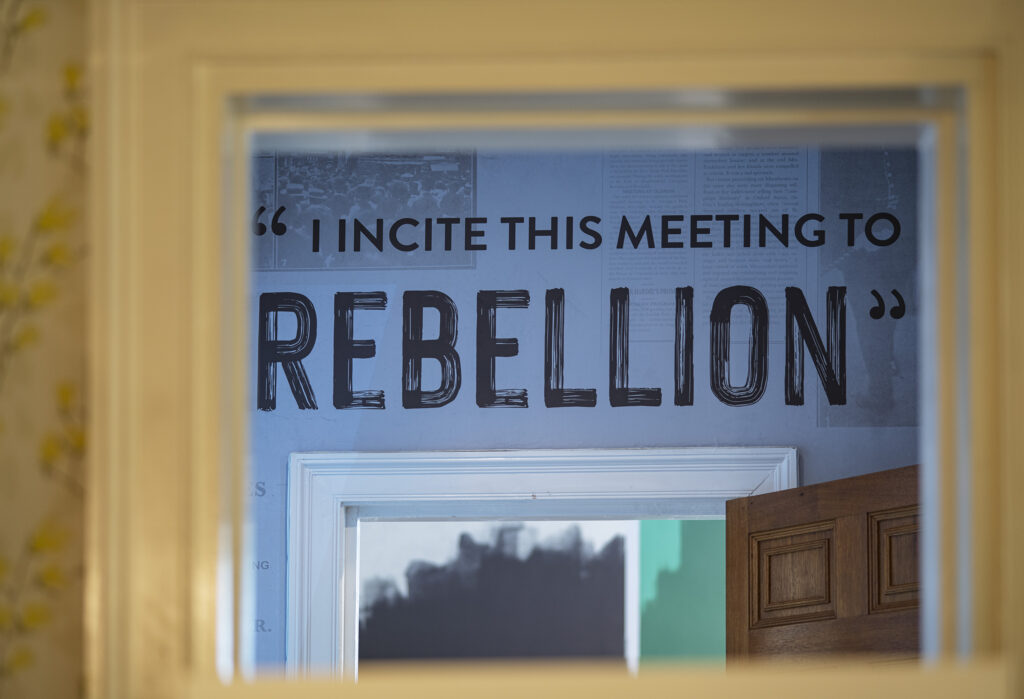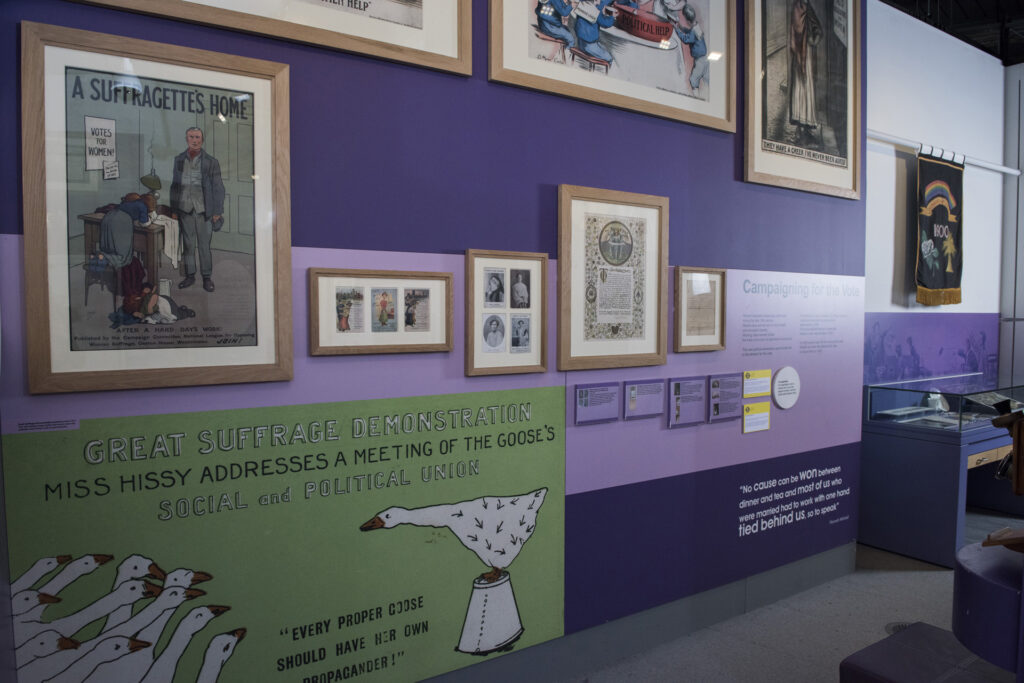The battle for women’s votes in Britain was largely waged in one special city. To celebrate International Women’s Day, Vicky Smith reveals the story of suffrage in Manchester.
Sidelined and repressed, women have played second fiddle to men throughout history: according to a 2021 report by the World Economic Forum, we’re still almost 136 years from achieving global gender parity; an alarming statistic which reveals why International Women’s Day, both a worldwide celebration of women and a campaign for their rights, is so vital.
In Britain, the annual 8 March event has particular resonance in Manchester, which is known as the ‘birthplace of female suffrage’. It was here that shopkeeper Lily Maxwell became the first known woman to vote in a parliamentary contest, after being mistakenly included on the Register of Electors following the 1867 Reform Act – an act that allowed one million more men the vote, provided they met certain property requirements. Maxwell rented a house and shop in the suburb of Chorlton-upon-Medlock, and so her name was included in error after being taken as ‘Lilly’ and mistaken to be male. Ultimately her vote was dismissed, prompting a campaign to persuade over 5,300 other women to add their names to the electoral roll and resulting in the Chorlton v Lings court case. The case was lost when they were deemed ‘personally incapable’ – like much of history, it was one small step for mankind, two steps back for womankind.

Far from giving up, however, Manchester women’s rights activists resolved to fight. From the former home of iconic suffragette leader Emmeline Pankhurst to the UK’s national museum of democracy, the city is still home to a number of locations that chart their setbacks and successes.
Free Trade Hall
The leading force behind the Chorlton v Lings case was activist Lydia Becker, who (among many things) founded the UK’s first national group to push for women’s right to vote. In 1868, this held its first public meeting in the Free Trade Hall, built on the site of the tragic 1819 Peterloo Massacre to mark the repeal of the Corn Laws in 1846. The hall would come to play a repeated role in the battle for female suffrage, perhaps most famously as the site of a 1905 Liberal meeting in which Christabel Pankhurst (Emmeline’s daughter) unfurled a banner asking ‘Will the Liberal government give votes to women?’ She was ignored, causing her to repeat the question and the gathering descended into chaos. Arrested after assaulting several policemen, Pankhurst – along with fellow lobbyist, factory worker Annie Kenney – chose imprisonment at Strangeways Gaol instead of a fine.
The Palazzo-style building is now the five-star Radisson Edwardian hotel but, whether treating yourself to a stay or not, it remains a Grade II*- listed landmark of democracy.
Our Emmeline statue
Born in 1858, Emmeline Pankhurst was founder of the Women’s Social and Political Union (WSPU) – later famously known as the suffragettes – and fought tirelessly for women’s votes, enduring arrests and hunger strikes as a consequence. Renowned for her motto ‘Deeds not Words’, she was the chosen winner of WoManchester, a statue campaign to honour more Mancunian women. Our Emmeline was unveiled on Friday 14 December 2018, exactly 100 years since some British women were given the right to vote (it was not until the Equal Franchise Act in 1928, just after Pankhurst’s death, that full voting parity was achieved).

The evocative statue depicts the WSPU leader mid-speech and is situated in St Peter’s Square, a staple in any Manchester itinerary. While the Town Hall, which backs on to the square, is currently undergoing renovation, it is worth visiting the Grade II*-listed Neoclassical Central Library and nearby Manchester Art Gallery; the latter featured in one of several suffragette protests and experienced some picture damage, though has since recovered and boasts a significant collection of more than 25,000 objects. Art lovers should also check out the Northern Quarter’s striking Serenity mural, a tribute to all women that stand against injustice.
The Pankhurst Centre
The 1960s to late 1980s marked a so-called ‘second wave of feminism’, which saw everything from publishing initiatives like Spare Rib and Virago Press to a blossoming of female charities. Aptly, it was during this time (in 1987) that the Pankhurst Centre opened, in the former house of Emmeline and her daughters, who moved to the property in 1898 following the death of Emmeline’s barrister husband, Richard – also a prominent equality advocate, who represented women in cases such as Chorlton v Lings. The house would come to host many suffragette milestones, including the first meeting in 1903.

Located in a pair of handsome redbrick Victorian villas, and today also home to Manchester Women’s Aid, the Pankhurst Centre reopened in 2021 following the Covid pandemic with an immersive new visitor experience and is the only museum dedicated to the story of women’s suffrage. Handily, it’s close to various other cultural hotspots too: these include the award-winning Whitworth Art Gallery and grounds, plus the house of eminent writer Elizabeth Gaskell – another female-focused treasure.
People’s History Museum
Women’s suffrage may have finally been won in the UK in 1928, but the fight for women’s rights goes on: subsequent breakthroughs include the Equal Pay Act (1970) and the Sex Discrimination Act (1975), meaning females could access industries and institutions that were previously unavailable. Finally, the Equality Act (2010) protects against discrimination based on any one of nine characteristics, signifying a major change in attitudes for women and other groups that have faced prejudice for centuries.

The People’s History Museum charts Britain’s ongoing rocky road to a fair society via powerful exhibitions and the country’s largest political collection. Don’t miss its Open Kitchen Cafe & Bar, which intercepts perfectly good food that would otherwise go to waste, or its well-stocked store: I recommend First in the Fight, a gorgeous illustrated book that profiles the longlist candidates in the WoManchester statue campaign. For more books, the Working Class Movement Library across the border in Salford is another democratic must-visit and reveals some fascinating insights into the lives of suffragettes.
More information
Vicky Smith is a freelance writer and photographer, specialising in travel and arts.
This article was originally published in The Travel Club e-zine in 2022. You can find out more about The Travel Club, including details on how to join, here.